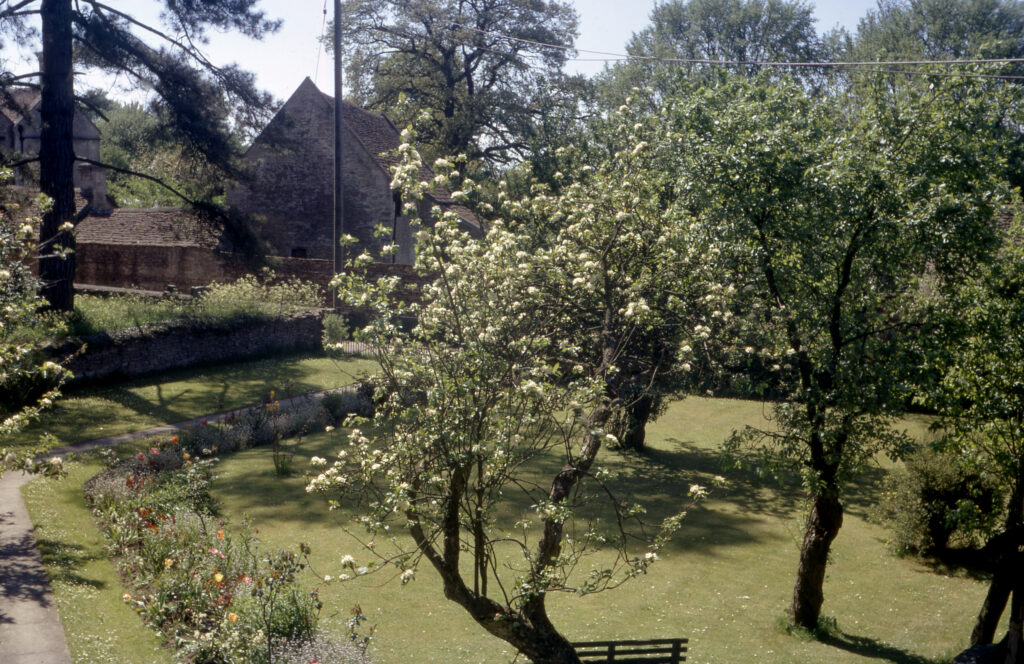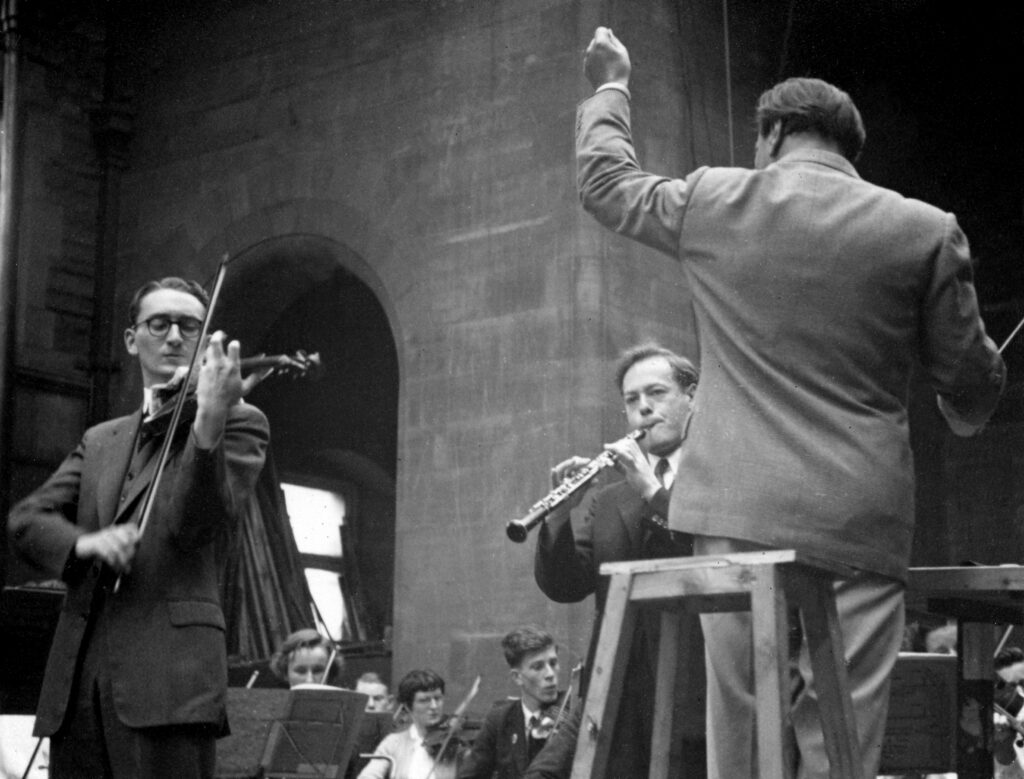At the outbreak of the Second World War, David Stone, with his mother and older sister, Audrey, went to live at his grandparents’ home in the then remote Cotswold village of Leighterton, while his father remained in blitzed Bristol. His idyllic garden – for him a country in itself, with its colourful variety of trees, flowers and fruit, its vegetable garden, paths, well, everything in abundant variety, adjacent to the Norman church – and the moods, mystical and otherworldly, of the Gloucestershire countryside, have inspired all his work.
“Gloucestershire is a state of mind …”
From the 1993 version of the one-man theatrical adaptation by David Buck of Robert Nye’s 1976 novel Falstaff


Starting piano lessons at the age of 5 (his mother was a distinguished piano teacher, his father an amateur singer, and his grandfather an expert, self-taught organist and choir master for the two largest Methodist choirs in Bristol), only at the age of 11 did he chance to volunteer at school for violin classes. Throughout his playing career he recognised the technical limitations for a string player imposed by so late a start; but he was determined to achieve as high a level as possible and to shape a meaningful life.
At Clifton College (1947–54), he was influenced by the example of the legendary one-armed pianist and organist Douglas Fox, Director of Music. With a State Scholarship and Polack Exhibition in Music and Classics to King’s College, Cambridge, he read Music and Theology. His mentors were men of stature: Boris Ord, the famous Director of King’s College Choir; Philip Radcliffe, the musicologist and Mendelssohn expert; Alec Vidler, theologian and Dean of King’s; and John Robinson, of Honest to God fame, later Bishop of Woolwich. At Cambridge he formed a string quartet and led Cambridge University Musical Society Orchestra in some exceptionally interesting programmes with such soloists as the harpsichordist Thurston Dart.

It is notable that David did not attend any recognised tertiary institution, such as the Royal Schools of Music, in Britain or anywhere else. He went to Cambridge at his parents’ insistence, although he was able to take very occasional lessons with Max Rostal and subsequently with Leonard Hirsch. Throughout his life David always spoke warmly of ‘Lennie’, and with gratitude. Hirsch, a pupil of Brodsky and the first leader of the Philharmonia Orchestra, once showed David a letter he had received from Walter Legge during Legge’s formation of the orchestra: ‘Dear Lennie, … I want you to create a string section the like of which neither god nor man has ever heard before. …’
Another mentor, to whom he, like so many other musicians owe so much, was Dame Ruth Railton, founder of the National Youth Orchestra of Great Britain. As an ex-member, David Stone was chosen as one of the soloists for the orchestra’s 10th anniversary appearance at the 1956 Edinburgh Festival.
